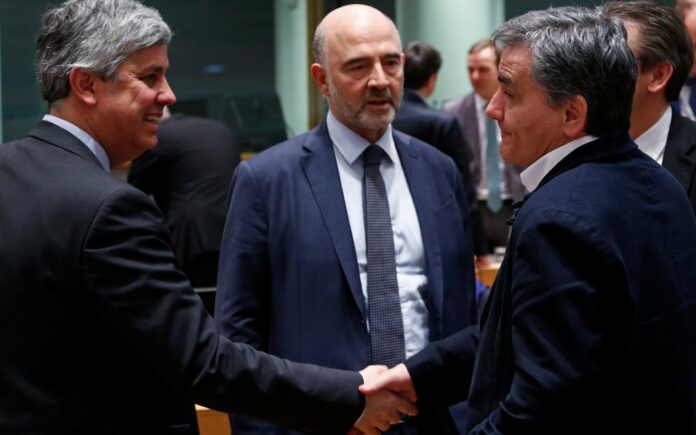By N. Bellos
[email protected]
Eurozone finance ministers – the Eurogroup venue – on Monday did not approve the disbursement of a 970-million-euro tranche to Greece, a more-or-less expected development linked with a failure to finalize a new legal framework for the protection of primary residences from creditors, among others.
The nearly one billion euro sum is profits generated from Greek bonds held by EZ member-states’ central banks and the European Central Bank (ECB), and is one of several medium-term debt relief measures agreed to by European creditors in 2017.
The insistence by Greece’s Eurozone partners to replace the now expired legal framework with a successor law deals more with increasingly urgent efforts to significantly reduce a mountain of “bad debt” held by the country’s four systemic banks.
Speaking after the Eurogroup meeting on Monday, EU Commissioner Pierre Moscovici confirmed that the lack of a new framework was the primary obstacle to gaining a “green light” for the disbursement.
The foundering Tsipras government has been in negotiations with the banks since early January, alternately switching to talks with European creditors and even receiving input from Greek central banker Yannis Stournaras.
Moscovici, one of the Tsipras government’s few boosters on the pan-European level, said the issue will again be discussed at a Eurogroup meeting on April 4.
His comments were mostly echoed by European Commission Vice-President Valdis Dombrovskis, who also referred to the lack of a successor framework for the so-called “Katselis Law”.














